Enjoy the vibrant culinary traditions and rich culture of Japan with a Japanese Cooking Class and Cultural Experience around Tokyo.
This immersive experience offers travelers the opportunity to not only learn authentic cooking techniques but also gain valuable insights into the fascinating traditions and etiquette of Japanese cuisine.
Led by expert local chefs, you will engage in hands-on cooking, using authentic ingredients and recipes to create delicious dishes.
From learning about traditional cooking techniques to sampling and tasting the fruits of their labor, participants can expect a truly immersive and memorable experience.
So, whether you’re a seasoned chef or a curious food lover, this cooking class is the perfect opportunity to expand your culinary skills and create lasting memories.
Quick Takeaways
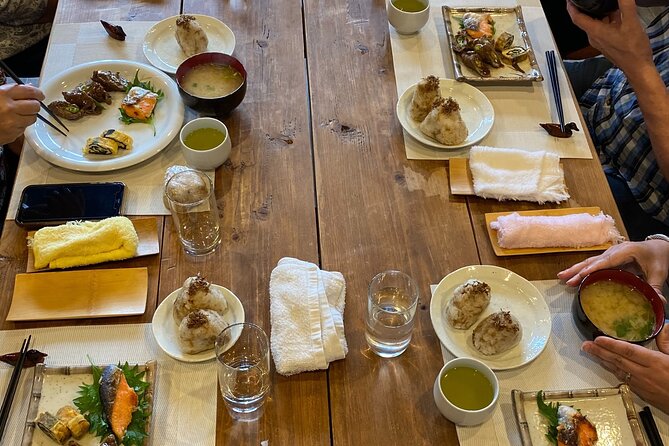
- Traditional Japanese cooking techniques prioritize natural flavors without overpowering them.
- Participants in the cooking class work with authentic ingredients and recipes, gaining cultural insights and etiquette.
- Expert guidance from local chefs ensures participants learn traditional techniques and receive instruction on regional cooking styles.
- The hands-on cooking experience allows participants to actively participate and understand the importance of ingredients and food presentation.
Traditional Japanese Cooking Techniques
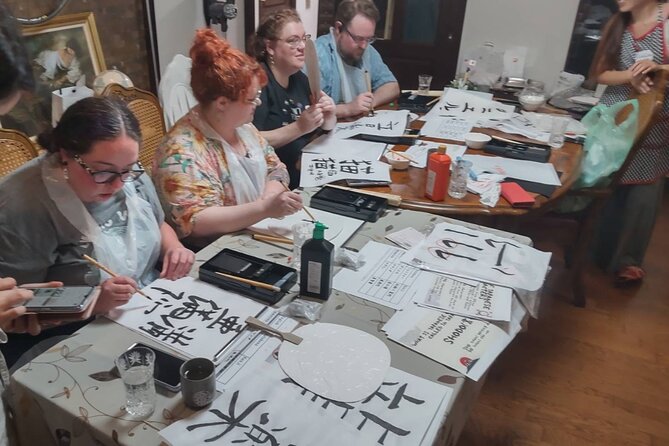
Traditional Japanese cooking techniques involve a combination of precise knife skills, meticulous attention to detail, and a deep respect for the quality and freshness of ingredients. These techniques have been passed down through generations, forming an integral part of Japanese culinary history.
Traditional cooking methods in Japan prioritize the natural flavors of the ingredients, aiming to bring out their essence without overpowering them. For example, sushi, one of Japan’s most famous dishes, requires the perfect balance of flavors achieved through precise knife cuts and delicate assembly. Similarly, the art of tempura showcases the mastery of deep-frying, where the batter is light and crispy, allowing the natural flavors of the ingredients to shine through.
These traditional techniques not only produce delicious dishes but also reflect the cultural values of simplicity, harmony, and appreciation for nature.
Authentic Ingredients and Recipes
Japanese cooking classes in Tokyo provide participants with an opportunity to learn about and work with authentic ingredients and recipes, seeing the rich culinary traditions of Japan.
These classes not only teach traditional Japanese cooking techniques but also offer cultural insights and etiquette tips. With expert guidance from local chefs, participants get a hands-on cooking experience, where they can learn to prepare and cook various dishes using authentic ingredients.
One of the highlights of these classes is the sampling and tasting of delicious dishes prepared during the session. Plus, participants are given take-home recipes, allowing them to recreate these dishes and cherish the memories of their cooking experience in Japan.
Cultural Insights and Etiquette

Participants in Japanese cooking classes around Tokyo gain cultural insights and etiquette that enhance their culinary experience. As they delve into the world of Japanese cuisine, they also learn about the rich traditions and customs that surround it.
Here are some of the cultural insights and etiquette they can expect to discover:
- Japanese Tea Ceremonies: Participants will have the opportunity to learn about the art of Japanese tea ceremonies, a ritual that dates back centuries. They’ll gain an understanding of the importance of grace, mindfulness, and harmony in this revered tradition.
- Traditional Clothing: In some cooking classes, participants may have the chance to dress in traditional Japanese attire, such as a kimono or yukata. This not only adds to the cultural experience but also allows them to enjoy the traditions of the past.
- Respect for Ingredients: Japanese cuisine places a strong emphasis on respect for ingredients. Participants will learn about the importance of using fresh, seasonal produce and how to handle ingredients with care and precision.
- Dining Etiquette: Japanese dining etiquette is known for its attention to detail and respect for others. Participants will learn about proper table manners, including how to use chopsticks, the order of serving dishes, and the significance of saying ‘Itadakimasu’ before a meal.
- Cultural Significance: Throughout the cooking class, you will gain insight into the cultural significance of different dishes, ingredients, and cooking techniques. They’ll learn about the history and traditions behind the food, deepening their appreciation for Japanese cuisine as a whole.
Expert Guidance From Local Chefs
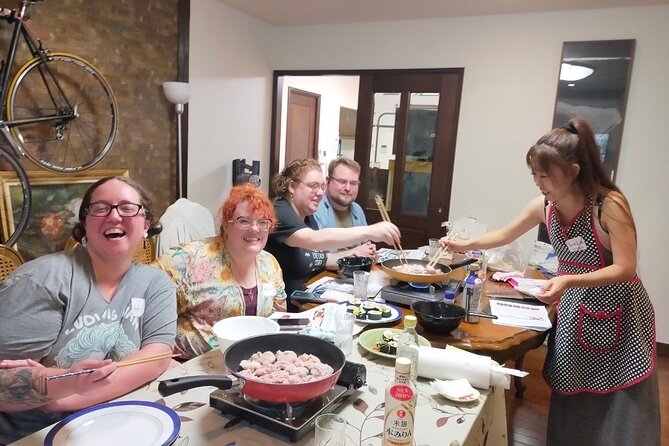
With the guidance of local chefs, visitors to Japanese cooking classes around Tokyo receive expert instruction on traditional culinary techniques and authentic recipes. These classes offer a unique opportunity to learn from professionals who are well-versed in the local culinary traditions and regional cooking styles of Japan.
The chefs share their extensive knowledge and expertise, providing valuable insights into the nuances of Japanese cuisine. Through hands-on demonstrations and step-by-step instructions, participants are able to master the art of preparing traditional dishes such as sushi, tempura, and ramen. The classes also emphasize the importance of using fresh, high-quality ingredients, as well as the proper presentation and garnishing techniques that are integral to Japanese cooking.
Hands-On Cooking Experience

Visitors to Japanese cooking classes around Tokyo can enjoy a hands-on cooking experience, where they can actively participate in preparing traditional dishes under the guidance of local chefs. This interactive experience allows participants to learn authentic Japanese cooking techniques while gaining insight into the cultural etiquette surrounding food preparation.
Here are some key aspects of the hands-on cooking experience:
- Learning traditional Japanese cooking techniques firsthand
- Understanding the importance of ingredients and their significance in Japanese cuisine
- Gaining knowledge about the cultural significance of food presentation
- Discovering the art of sushi making and the precision required
- Developing an appreciation for the balance of flavors in Japanese dishes.
Sampling and Tasting Delicious Dishes
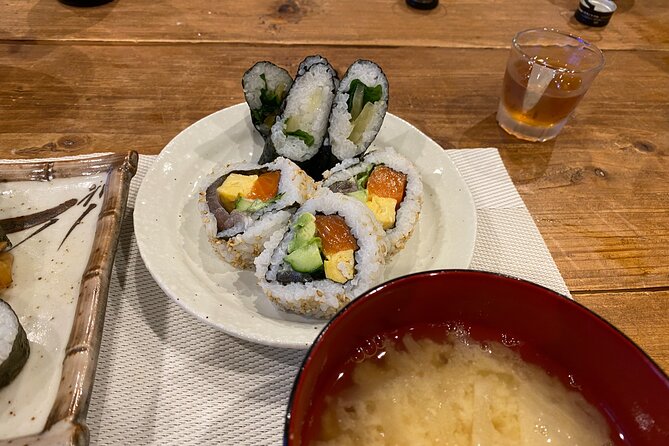
During the hands-on cooking experience, participants can indulge in sampling and tasting delicious dishes that they’ve prepared themselves. This opportunity allows for food appreciation and culinary exploration, as participants get to experience the flavors and textures of traditional Japanese cuisine.
From creating sushi rolls to mastering the art of tempura, each dish offers a unique taste that showcases the rich flavors of Japan.
Through this interactive cooking class, participants not only learn the techniques and skills of Japanese cooking but also gain a deeper understanding of the cultural significance behind each dish.
Take Home Recipes and Memories

Participants in the Japanese cooking class and cultural experience around Tokyo will regularly receive take-home recipes and create lasting memories. This unique aspect of the cooking class offers several benefits and souvenirs for the participants to cherish:
- Authentic Recipes: Participants will be provided with authentic Japanese recipes that they can recreate at home. These recipes are carefully crafted by experienced chefs, ensuring the participants can enjoy the flavors of Japan even after the class is over.
- Cultural Insight: Through the recipes, you will gain a deeper understanding of Japanese cuisine and its cultural significance. They’ll learn about the ingredients, techniques, and traditions that make Japanese cooking so special.
- Connection to Japan: By bringing home these recipes, participants can continue to connect with Japan and its culinary heritage. They can share their newfound knowledge and dishes with friends and family, spreading the love for Japanese cuisine.
- Personalized Souvenirs: The take-home recipes serve as personalized souvenirs from the cooking class. Participants can look back on their experience and recreate the dishes, reminding them of the fun and educational time they’d in Tokyo.
- Lasting Memories: Cooking together and learning about Japanese cuisine creates lasting memories for the participants. The shared experience of preparing and enjoying delicious dishes will stay with them long after they return home.
Frequently Asked Questions
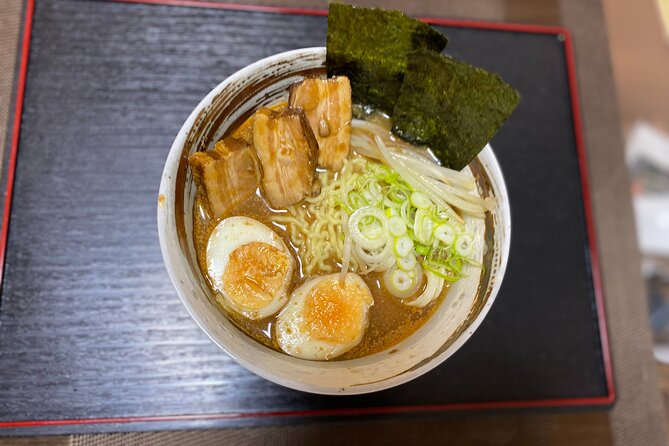
Is the Cooking Class Suitable for Vegetarians or Vegans?
Yes, the cooking class offers vegetarian options and vegan-friendly alternatives. Participants can learn to prepare traditional Japanese dishes using plant-based ingredients. The class provides a hands-on experience in Japanese cuisine that caters to different dietary preferences.
Are Children Allowed to Participate in the Cooking Class?
Children of all ages are welcome to participate in the cooking class. There are no age restrictions, and the class is suitable for kids. It’s a fun and educational experience for the whole family.
Is It Necessary to Have Prior Cooking Experience to Join the Class?
No prior cooking experience is necessary to join the class. The class offers beginner-friendly options and aims to teach participants the necessary cooking skills to create authentic Japanese dishes.
Do I Need to Bring Any Ingredients or Cooking Utensils?
Participants do not need to bring any ingredients or cooking utensils to the Japanese cooking class. All necessary ingredients and utensils are typically provided, ensuring a seamless and enjoyable cooking experience.
Can I Take Home Any Leftovers or Unfinished Dishes From the Class?
Yes, participants are typically allowed to take home any leftovers or unfinished dishes from the Japanese cooking class. This not only ensures that nothing goes to waste, but also allows for a deeper understanding of the cultural significance of the experience.
The Sum Up
The Japanese Cooking Class and Cultural Experience around Tokyo offers a unique opportunity for travelers to enjoy the rich culinary traditions and vibrant culture of Japan.
With expert guidance from local chefs, participants can learn traditional cooking techniques, use authentic ingredients, and gain cultural insights and etiquette.
The hands-on experience allows for sampling and tasting of delicious dishes, and participants can take home recipes and memories to cherish.
This experience is a must-do for foodies and those looking to explore the culinary delights of Japan.




